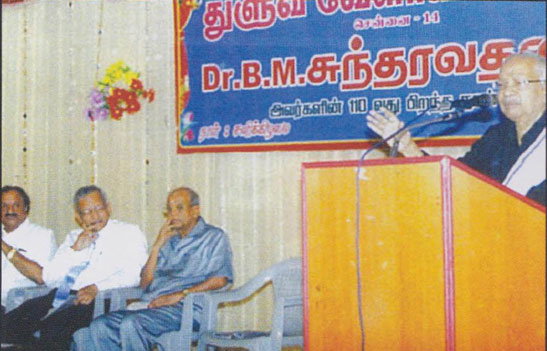Veeramani Yadav addressing Thuluva Vellalar Sangam on the importance of creating a casteless society 

Karu Palaniappa Chettiar wants you to vote for Su Venkatesan Reddiar to keep Manuvaadi Fascists out of Tamil Nadu. 

Naidu Mahal opened by AV Velu Naidugaru and Pichandi Naidu garu- request from @wtfex garu. 

• • •
Missing some Tweet in this thread? You can try to
force a refresh









